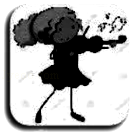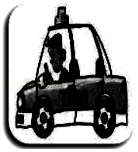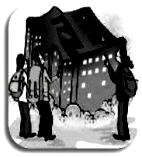



 | Violin lessons ※A good musician. Good at teaching kids for ten years. ※Your home or mine. Call Helen at 3846635. |
 | Lost dog ※Medium size e and short white hair. I'll answer you when you call it Carl. ※Many thanks for returning it to me. Call at 6825741. |
 | Taxi driver wanted ※Full time. Experience and a good knowledge of the city. ※Under 45 years old. Call Mr. Green at 8635219. |
 | Apartment for rent (公寓出租) ※Two bed-rooms, a kitchen and a bathroom. Hot water for twenty-four hours. ※Beautiful sights out of the windows. E-mail: Jack 163. com |